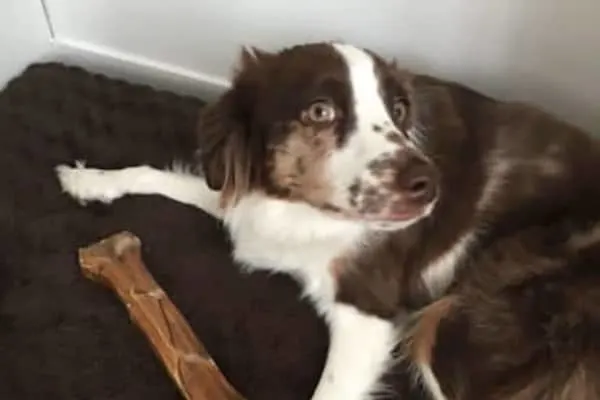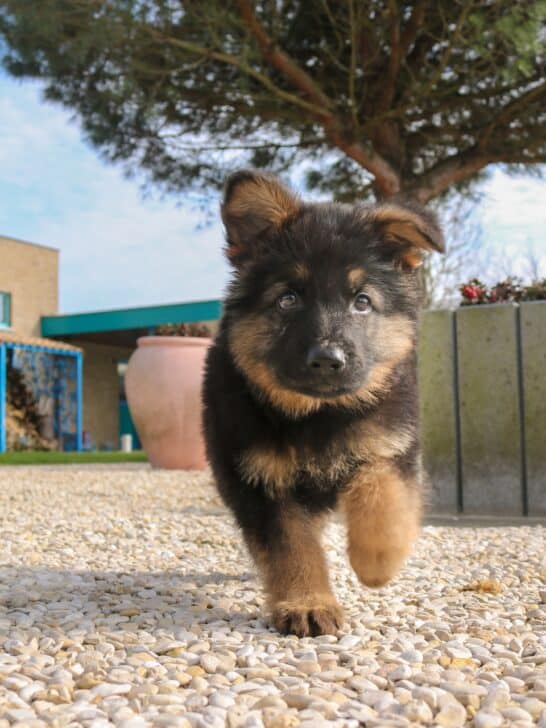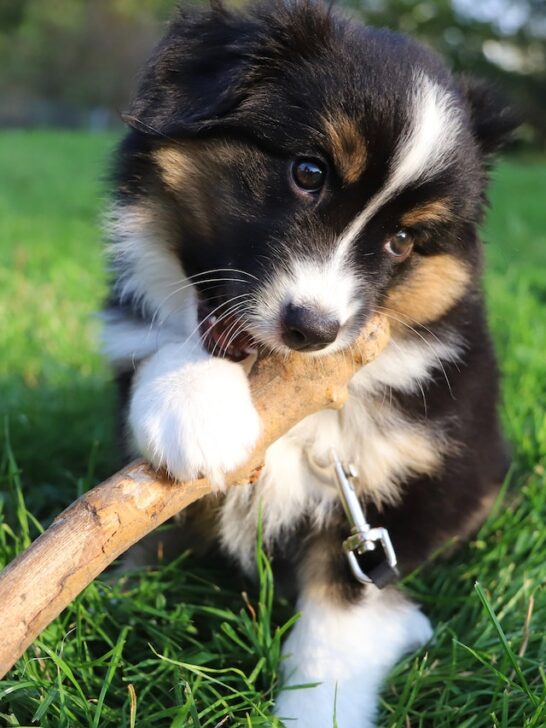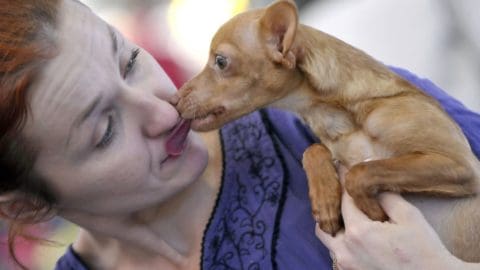A Guide On How Dogs Say Sorry
The more time that you spend with your dog, the more you begin to understand him and the more he understands you.
And with that understanding comes mutual trust and an almost unspoken form of communication.
Your dog slowly, but surely begins to intuit what you want and expect from him, and in turn, you learn that your dog doesn’t always communicate in barks, growls, whine, and whimpers.
Sometimes he’ll tell you how he’s feeling, and what he’s thinking by cocking his head in a certain way or the speed at which he wags his tail.
Actions, in the canine world at least, can and do, speak louder than words.
Of course, that interaction depends entirely on whether or not you believe that your dog can, and does understand complex emotions in the same way that humans do.

Animal psychologists and innumerable scientific studies have proved that dogs understand and feel basic emotions such as anger, happiness, and love.
They’ve also shown that dogs base their interaction and relationships with humans based on those factors, and whether or not they even understand anything more complicated remains open to debate.
Does your dog actually feel guilt? Does he know how to say sorry and does he understand what he’s apologizing for and why he is doing it?
Or is he merely demonstrating a series of learned responses to a situation?
Have we given dogs too much credence and are we reading far more depth into their behavior than there actually is?
Or are we ascribing a very human way of thinking to a dog’s actions and overwriting a simplistic response to a given scenario with what we want to see, and believe is happening?
In other words, are we judging a dog’s actions and the way they respond to us with our hearts or our heads?
Seeing The World Through A Dog’s Eyes
It’s a question that while being entirely valid, will usually be met with a forthright and emphatic affirmative response by most owners.
Because an owner wants to always see the best in their dog, they will automatically believe that the dog understands when they’ve done something wrong without having to be chastised or told off for doing it.
And even though it might seem like we’re trying to distance ourselves from the believer’s camp, nothing could be further from the truth.
We know, or rather we choose to believe, that dogs are capable of understanding far more than most psychologists would credit them with being able to.
How many times have you felt as though the world was about to cave in around you, and your dog has immediately understood this and tried to provide the emotional support that you so desperately need in that moment, by cuddling a little closer, offering you his paw or licking your face?
How many times has your dog reacted with a wag of his tail when he sees you smile?
The subtle references to our wellbeing and emotional state that we express on a daily basis can be sensed and understood by our dogs, and if they know how to react to our more complex emotions, surely that means that their responses are driven, in part at least, by the fact that they also feel, and experience the same complex emotions that their owners do.

Can Dogs Feel Guilt?
The idea that your dog knows how to say sorry is predicated on the supposition that he can also feel guilt or understand when he’s been naughty. And dogs can and do feel and understand both.
Don’t believe us, okay we’ll illustrate our point with an example, that as a dog owner, we’re sure that you’ll not only be able to relate to, but have at some point experienced.
Have you ever walked through the door of your home to find something chewed up, or cushions and furniture scattered everywhere? You have? Good, then you’ll probably know where we’re heading.
And where was your dog when you walked through the door and discovered the disarray that has befallen your humble home?
Hiding and cowering in a corner because they were too ashamed to face you and in doing so, be reminded about what they did while you were out?
That behavior is a canine shame response generated by the knowledge that you will be disappointed in them. It’s your dog’s version of feeling guilty.
How Does A Dog Say Sorry?
Dogs have a number of different ways of apologizing for their actions, all of which they can and do engage in without being told that they’ve been “naughty”.
If they dip their ears, bow their heads and walk toward you slowly with their tail curled between their hind legs, it’s a non-verbal acknowledgment of their guilt and the tentative way they’re approaching you is their way of saying sorry and asking you to forgive them.
Some dogs will often add a soft, repeated whimper that emphasizes their guilt and reinforces their need for your forgiveness.
It’s important to quickly and affirmatively acknowledge your dog’s behavior, and either greet them with a kind, but firm response or pet them and reassure them that you’re not angry.
It’s also incredibly important to remember that you are the center of your dog’s world and that to him, your forgiveness at that moment is everything.

How Do Dogs Know When They’ve Been Naughty?
How does a dog know when he’s been naughty?
He knows, because he learns from you, and the longer he spends with you, the more he learns through observation what you expect from him, and what is and isn’t acceptable behavior.
Once your dog understands the boundaries that have been sent for him, breaking the rules, or crossing the boundary lines will, in most cases, automatically initiate a guilt response which in turn will make him apologize in an effort to ensure a return to the status quo that both he, and you, are used to.
Can a dog say sorry? Absolutely, and whether you knew he was doing it or you didn’t, your dog has almost certainly already said sorry to you on more than one occasion.
And the next time he does it, you’ll know exactly what he’s doing.






























